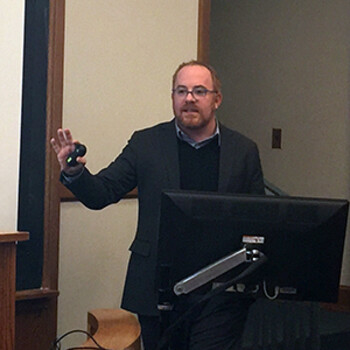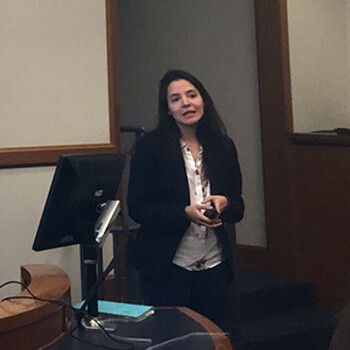On March 6, 2017, the Solomon Center for Health Law and Policy, Schell Center for International Human Rights, Global Heath Justice Partnership, and the Yale Health Law and Policy Society hosted a lunch panel on the constitutional right to health and what this means in practice. The “right to health” is increasingly enshrined in national constitutions around the world. It is present today in a slight majority of written constitutions, and there has been considerable debate over whether this trend is good, bad, or meaningless.
The panel featured Matthew Kavanagh, a fellow at the Leonard Davis Institute of Health Economics and a Mumford Doctoral Fellow in Political Science at the University of Pennsylvania, as well as the senior policy advisor for the Health Global Access Project, who provided the global perspective. Additionally, Natalia Pires de Vasconcelos, Fox Fellow at the MacMillan Center for International and Area Studies at Yale Law School and a PhD candidate in Constitutional Law at the University of Sao Paulo, provided a deeper look within the Brazilian context.
Kavanagh kicked off the event by presenting a talk on “Constitutionalizing Health: Rights and the Political Economy of Health Policy.” In the presentation, he introduced the debate about the growing number of constitutions with a right to health and whether and how this has impacted health. To answer this question, Kavanagh presented quantitative evidence that a right to health improves health outcomes, such as immunization and infant mortality. While total health spending is no greater, there is increased public expenditure and fewer out-of-pocket expenses. He also presented a South African case study that explored the role of the right to health as a policy anchor and democratizing force, looking beyond final court orders at power shifts taking place through discovery, subpoenas, and development of the court’s record.
Pires then presented her lecture, “Courts and Healthcare in Brazil: Response from Public Officials to the Judicialization of Healthcare.” She discussed the Brazilian constitution’s right to health, which has resulted in a significant number of private lawsuits. In these individual cases, Pires described the courts’ tendency to rule in favor of claimants regardless of cost, efficiency, or available alternatives, rather than engaging with the structure of the health care system. Public officials provided individual remedies in almost 100% of the cases. However, interestingly, they also engaged in policy reform to prevent future adjudication and avoid the disruptive effect of individual compliance. Cases also led to cooperation amongst different bureaucracies and the creation of participation mechanisms for communities. Pires also described the development of an administrative track that would look at health issues more broadly as an attempt to take individual claims out of the judicial system, but thus far, this has mostly been used by pharmaceutical companies.
The two speakers also answered questions from the audience about topics such as the enforceability of the right to health, the role of democracy and elections, the role of private litigation, and the influence of pharmaceutical companies.




